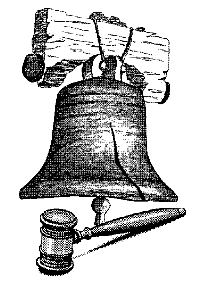Today Governor David Paterson criticized the decision to try Khalid Shaikh Mohammed and four other accused 9/11 hijackers in Manhattan federal court. The decision, which was announced on Friday by U.S. Attorney General Eric Holder, has ignited a fierce debate that questions the appropriate role of the law in in the struggle against terrorism -- and in American society itself.
Conservatives and Republican politicians have derided the move as a political maneuver that threatens national security and increases the possibility that the accused terrorists will go free. Most Democrats and supporters drawn from the ranks of organizations such as the ACLU have praised the decision as a triumph for the rule of law and American justice. The families of victims of the 9/11 tragedy have expressed conflicting opinions, with some welcoming and others disparaging the plan to try the detainees in New York. Despite the contentious debate, all of the vociferous parties in this debate agree on many central issues; no one has expressed serious doubts about the culpability of the detainees, nor has anyone suggested that they should not be made to answer for their crimes. Both sides also acknowledge that the alternative (trying the detainees in military commissions) affords the accused individuals fewer rights and procedural protections.
Interestingly, the controversy surrounding AG Holder's decision does not seem to stem from concerns about security or the threat of terrorist attack. While some conservatives have suggested that civilian trials will increase the threat to the nation, a recent poll showed that, though most Americans did opt for trials by military commissions, a majority felt that the detainees should still be brought to the United States. Statements like those of Rep. Peter Hoekstra (R-MI), which allege that bringing the accused terrorists to Manhattan raises the risk of further attacks, thus seem to be off-target with respect to the concerns of the American public. Moreover, there is little evidence to support such claims. While this trial has certainly caught the attention of the media, Senator Jack Reed (D-RI) has pointed out that numerous terrorism suspects have already been successfully prosecuted in civilian courts -- many under the Bush Administration.
The debate actually appears to grow out of a fundamental disagreement over the very propriety of determining the detainees' guilt in American courts. Former New York Mayor Rudolph Giuliani has claimed that the "choice of New York is a better choice for the terrorists" and that the government is "giv[ing] the terrorists a better choice than [it's] giving the public," but the justification for these statements is not exactly clear. As Rep. Jerrold Nadler (D-NY) has argued, “Any suggestion that [Manhattan's] prosecutors and law enforcement personnel are not up to the task of safely holding and successfully prosecuting terrorists on American soil is insulting and untrue.” It seems safe to say that many Americans would agree -- that the prestigious U.S. Attorney's Office for the Southern District of New York is more than capable of delivering justice for the victims, their families, and the nation as a whole. Why, then, are many so resistant to the decision to try the detainees in American courts?
Perhaps the animus of the opposition is best captured in the words of Senator Judd Gregg (R-NH). Senator Gregg has called the detainees "evil people," arguing that "they represent a cause which wants to destroy this nation. [. . .] There's no reason we should have them in the criminal justice system." This sentiment is in fact quite shocking when one considers the rich history and pedigree of the American legal system. Our Constitution promotes the rule of law by guaranteeing essential rights that protect people from wanton discrimination, persecution, and tyranny. The document itself was born from the struggles of an oppressed and disenfranchised group who found the courage and fortitude to build a government that would breathe life into moral ideals such as liberty and freedom, creating a nation that was "of the people, by the people, for the people." The rule of law, however, is meaningless if not applied equally.
The United States has learned -- and continues to learn -- from painful civil rights struggles that liberty and equality cannot be separated. From the persecution of Native Americans to the institution of slavery to the fight for gay rights, our nation is faced with grim reminders and difficult challenges that highlight the importance of equality under the law. This principle is so entrenched in our history, in our identity, and in our jurisprudence that it cannot and should not be suspended even for the most detestable of human beings. The military commissions begun by the Bush Administration ignore many of the rules that most Americans hold inviolate -- protections that have grown out of centuries of thoughtful legal evolution. They are not to be dismissed lightly (if at all), and it is exceedingly dangerous to allow them to be rescinded by the government simply because the accused is especially despised.
The principles and protections afforded by American courts are envied and emulated around the world because they confer upon the accused the dignity and respect that are inseparable from the human condition. The American legal system embraces the concept (in principle if not always in practice) that every individual is entitled to just treatment. The persons responsible for the 9/11 attacks are indeed reprehensible individuals, but that does not mean that they should be placed in a special category or denied equal justice under the law. The ideals enshrined in the Constitution are not intended only as protections for the accused, but for society as well. After all, using hate as a justification to abandon the commitment to the pursuit of justice leaves only revenge as a remedy -- a course that simply moves us closer to our adversaries.
Tuesday, November 17, 2009
Thursday, November 5, 2009
Fallen Heroes
Subscribe to:
Comments (Atom)
